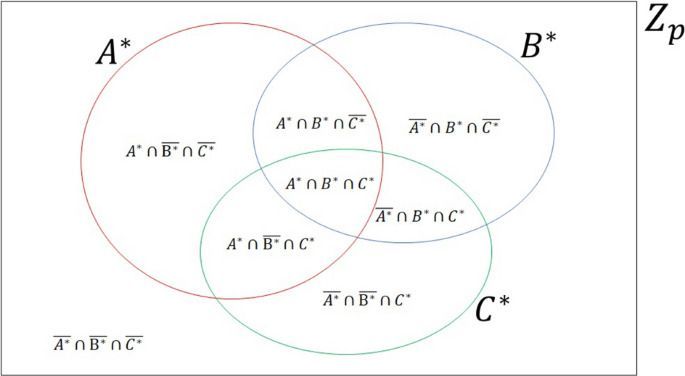The advent of “big battery” technology addresses a key challenge for green energy – the intermittency of wind and solar.


This video explains translation or biosynthesis of proteins.
Thank You For Watching.
Please Like And Subscribe to Our Channel: https://www.youtube.com/EasyPeasyLearning.
Like Our Facebook Page: https://www.facebook.com/learningeasypeasy/
Join Our Facebook Group: https://www.facebook.com/groups/460057834950033

On December 3, Science magazine published a scientific paper by Chinese scientists on the results of experiments with a prototype quantum computer.
It was widely reported in the media that the Chinese system needed only 200 seconds to carry out a computation that would take over two billion years using the fastest supercomputer existing today.
The experiments were designed and carried out by a top-level research group led by Pan Jianwei and Lu Chaoyang of the University of Science and Technology in Hefei, China. Pan is one of the most famous Chinese physicists today, referred to once in Nature magazine as the “Father of the Quantum.”

Quantum key distribution is one kind of important cryptographic protocols based on quantum mechanics, in which any outside eavesdropper attempting to obtain the secret key shared by two users will be detected. The successful detection comes from Heisenberg’s uncertainty principle: the measurement of a quantum system, which is required to obtain information of that system, will generally disturb it. The disturbances provide two users with the information that there exists an outside eavesdropper, and they can therefore abort the communication. Nowadays, most people need to share some of their private information for certain services such as products recommendation for online shopping and collaborations between two companies depending on their comm interests. Private Set Intersection Cardinality (PSI-CA) and Private Set Union Cardinality (PSU-CA), which are two primitives in cryptography, involve two or more users who intend to obtain the cardinalities of the intersection and the union of their private sets through the minimum information disclosure of their sets1,2,3.
The definition of Private Set Intersection (PSI), also called Private Matching (PM), was proposed by Freedman4. They employed balanced hashing and homomorphic encryption to design two PSI protocols and also investigated some variants of PSI. In 2012, Cristofaro et al.1 developed several PSI-CA and PSU-CA protocols with linear computation and communication complexity based on the Diffie-Hellman key exchange which blinds the private information. Their protocols were the most efficient compared with the previous classical related ones. There are also other classical PSI-CA or PSU-CA protocols5,6,7,8. Nevertheless, the security of these protocols relies on the unproven difficulty assumptions, such as discrete logarithm, factoring, and quadratic residues assumptions, which will be insecure when quantum computers are available9,10,11.
For the sake of improving the security of PSI-CA protocols for two parties, Shi et al.3 designed a probabilistic protocol where multi-qubit entangled states, complicated oracle operators, and measurements in high N-dimensional Hilbert space were utilized. And the same method in Ref.3 was later used to develop a PSI-CA protocol for multiple parties12. For easy implementation of a protocol, Shi et al.13 leveraged Bell states to construct another protocol for PSI-CA and PSU-CA problems that was more practical than that in Ref.3. In both protocols Ref.3 and Ref.13, only two parties who intend to get the cardinalities of the intersection and the union of their private sets are involved. Although Ref.12 works for multiple parties, it only solves the PSI-CA problem and requires multi-qubit entangled states, complicated oracle operators, and measurements. It then interests us that how we could design a more practical protocol for multiple parties to simultaneously solve PSI-CA and PSU-CA problems. Inspired by Shi et al.’s work, we are thus trying to design a three-party protocol to solve PSI-CA and PSU-CA problems, where every two and three parties can obtain the cardinalities of the intersection and the union of their respective private sets with the aid of a semi-honest third party (TP). TP is semi-honest means that he loyally executes the protocol, makes a note of all the intermediate results, and might desire to take other parties’ private information, but he cannot collude with dishonest parties. We then give a detailed analysis of the presented protocol’s security. Besides, the influence of six typical kinds of Markovian noise on our protocol is also analyzed.

In a press release, the U.S. Army announced that initial Mobile Protected Firepower (MPF) prototypes arrived at Fort Bragg, North Carolina. The preproduction MPF vehicles will be put through their paces by paratroopers from the Army’s 82 Airborne.
“We are incredibly excited to see the MPF platform entering into this phase,” an Army Ground Combat Systems official stated, explaining that the “MPF represents an innovative and aggressive approach to system acquisition. The beginning of our SVA (soldier vehicle assessment) in January illustrates how hard the teams are working to keep the major events of this program on schedule,” despite the ongoing pandemic.
The Army awarded two initial prototyping contracts to both BAE Systems and General Dynamics back in 2018. The contracts, worth $376 million each, covered a total of 504 final production Mobile Protected Firepower vehicles, with initial deliveries scheduled for 2025.




When it comes to magnetic tape storage capacity, smaller is larger. That is, as the magnetic particles that store data become smaller, more data can be stockpiled in the same amount of space.
Two leading tech giants put that simple principle to work and announced Wednesday that they have developed a magnetic tape cartridge boasting the most dense storage capacity of any media in the world. Fujifilm and IBM say research into a new material, strontium ferrite, led to the creation of a tape cartridge capable of storing 580 terabytes of data. That’s enough to store roughly 580 million books, according to an IBM blog post published Wednesday.
Considering there are about only 130 million books in existence today, that’ll leave plenty of room for extras.

Kill a Watt
The reason why the price of energy storage is such an important automotive indicator is because the battery pack accounts for roughly a quarter of an EV’s total cost, making it the number one determinant of price.
It could be the electric car industry’s watershed moment: once dipping below the price of gasoline-powered engines, electric vehicles will look far more attractive to far more consumers.